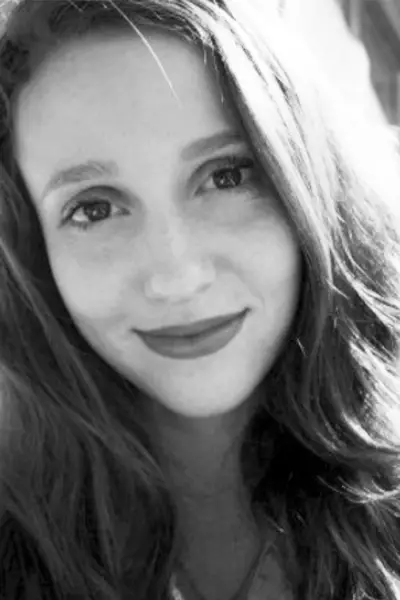Whether they are in pursuit of a degree in economics, biology, communications or art history, every student — even Mick Jagger, who dropped out of the London School of Economics to become a Rolling Stone — have, at least once, experienced feelings of self-doubt in the face of choosing the path that is best for them.
Perhaps some of the most insightful answers to these familiar frustrations can be credited to the exchange of a collection of letters between bohemian Austrian poet Rainer Maria Rilke and Franz Xavier Kappus, a teenage officer cadet at a military academy (at which Rilke also studied years before) in Vienna who struggled to balance his love for poetry and the potential of his career as a military officer. “Letters to a Young Poet” is the documentation of an artist’s conversation with a student on the cusp of adulthood and at an intersection of many different paths.
For many students who prefer to peer through a microscope or learn how to program computers, the word poet may immediately evoke an aversive reaction — which is understandable because not everyone is interested in the discipline, and sometimes find it pretty much intolerable.
For instance, I really dislike chemistry and modern art. Trying to digest it feels like running into a brick wall. What’s important to remember, though, is that my aversion doesn’t mean I can’t learn something valuable from the work of Marie Curie or Pablo Picasso. Why would this collection of letters between two obscure German-language poets from over 100 years ago be of any value to those who shudder at the word poetry?
The distinctive feature of the letters is that they reach far beyond the sphere of poetry and literature, urging the young student to explore broader issues of sexuality, loneliness and career choices. Rather than provide the criticism for which Kappus seeks of his poetry in his initial letter, Rilke launched into a discourse that offered his young correspondent more than what he may have expected. The beauty of this exchange, which lasted from 1903 to 1909, is that the most shining passages of Rilke’s responses are applicable to all young adults who struggle to balance the pursuit of one’s passion and opportunities.
Criticism
When 19-year old Kappus wrote to Rilke in 1902 requesting a critique of his fledgling poetry, he declined, instead encouraging the young student to trust his inner judgement and disregard criticism: “You are looking outwards, and of all things that is what you must now not do. Nobody can advise you and help you, nobody. There is only one way. Go inside yourself.”
Anybody who’s ever been asked the question, “Well what are you going to do with that?” has undoubtedly, at some point, launched into an inner monologue along these lines: “WHATEVER I WANT! I might not even end up doing what I’m going to school for! Am I not doing this right?! Should I change my major?!”
When I first began my undergraduate career, I felt the constant pressure of criticism from others who questioned my study of choice, where I chose to go to school and how I planned to apply my education after graduating. Perhaps it wasn’t quite as monumental as dropping out to become a Rolling Stone, but the moment I stopped acknowledging other people’s criticism and looked within myself was when I finally understood that introspection was the only way to decide which path to take.
Patience
Much like Franz Kappus in his youthful angst, patience was something that I, along with countless other young people, had to practice if I was going to learn the difference between cultivating a passion for something and following great opportunities. Rilke eloquently explains to Kappus that patience is necessary if one wishes to arrive at the place in life for which they yearn.
“Have patience with everything unresolved in your heart and to try to love the questions themselves…search for the answers, which could not be given to you now, because you would not be able to live them…Live the questions now. Perhaps then, someday far in the future, you will gradually, without even noticing it, live your way into the answer.”
Fear of the unknown is something all college students can resonate with. Is this the right course of study for me? Will I be able to find a job with my degree? What am I going to do if I don’t like it? It took me six years to finally finish my bachelor’s degree after asking myself these things constantly, changing my major twice, dropping too many classes and allowing my fear of the distant future to discourage me.
Don’t worry about how long it takes for you to figure out what you want for yourself in college. Don’t worry about that.
Have patience. Whether you become a journalist or a lab technician or a diesel mechanic, you will live your way into the answer.
Loneliness
For those who have had the chance to leave home in pursuit of their education, loneliness is a familiar and sometimes prolonged spell of outgrown friendships, uncomfortable dorm rooms and, most of all, homesickness. When Franz Kappus expressed the loneliness in which he lived — fearful of being ostracized and socially reprimanded were he not to enter the German military — he received from Rilke an insightful resolution:
“Love your solitude…for those who are near you are far away, you write, and this shows that the space around you is beginning to grow vast…be happy about your growth, in which of course you can’t take anyone with you, and be gentle with those who stay behind…”
In other words, that seemingly vast and empty space some have felt around them as they unpack their belongings in a dorm room on move-in day — imagining what their new roommate might be like and pretending it didn’t hurt to tell their parents goodbye — is something to be embraced. I left home 6 years ago, have drifted apart from many friends and I still miss my mom every day. I know now that distance was necessary.
Rilke reminds his young correspondent that in order to grow you must first have the room to grow, even if it means a long and silent distance between yourself and old friends. Only by accepting solitude as a gift can one learn from it.
The Answers
While his letters resonate a lyrical wisdom, Rilke of course did not and could not have had all the answers. Kappus ultimately decided to pursue his military career for 15 years, after which he became a journalist, editor, short-story writer and, you guessed it, a poet. That he did not choose to leave the academy like Rilke did years earlier does not mean the influence of the poet’s letters went to waste.
This is not a claim that a collection of letters from over 100 years ago has every single answer for anyone who has ever experienced the self-doubt, the loneliness and the slow passing of time between their first day and graduation. Rilke himself understood that in the end the only way to make sense of your experience is not by asking other people to do it for you, but to look within yourself.










